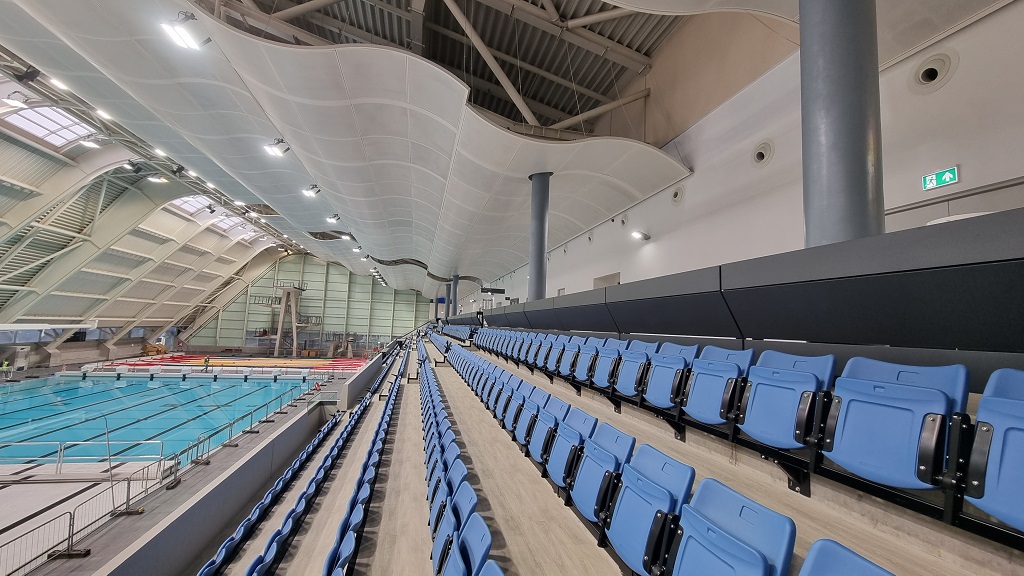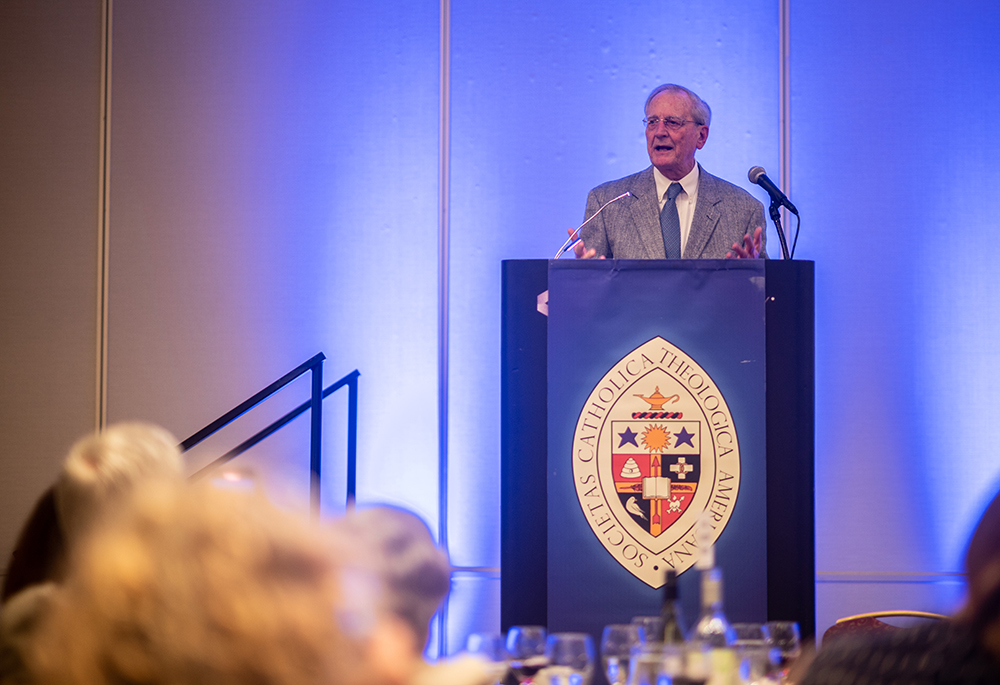“I love coming in to work”

Professor Irene Tracey is the University of Oxford’s 273rd Vice-Chancellor and Professor of Anaesthetic Neuroscience in the Nuffield Department of Clinical Neurosciences. Born and raised in Oxfordshire, she completed her undergraduate and graduate coursework in Biochemistry at Merton College.
Prior to becoming Vice-Chancellor, she was Warden of Merton College and co-founded the Oxford Centre for Functional Magnetic Resonance Imaging of the Brain (FMRIB) now known as the Wellcome Centre for Integrative Neuroimaging.
You were born and raised around Oxford. How was your childhood and youth?
I’m a town and a gown. I grew up in a village called Kidlington, which is about five miles north of Oxford. I was the youngest of six children, and I had loving parents and a loving family. Lots of fun, lots of noise.
I went to the local primary school and local secondary school in Kidlington. I was really sporty and musical. I was a very active kid and did hockey, tennis, and athletics – I really loved sports. I also played the piano and still do, sang in the choir, and did drama. I very much enjoyed my studies, and I was encouraged.
My parents were very passionate about education and its importance. They were the generation that were evacuated in the war when they were very young – at age 12 or 13. They understood the importance of getting a good education because they missed out on that. Fantastic parents in every regard.
Now that you are in your second term as Vice-Chancellor, how has life in this new role been?
It’s been great. I have to say that I’m really enjoying it, a lot more than I expected. My excitement around it hasn’t at all waned in the two terms. I love coming in to work. I’m really relieved that I’m loving it so much, because I had to stop being a scientist and not run my old college to do this job. So, thankfully, it really is everything I hoped for, and even more.
It’s a big and challenging job, though. Every day, there are issues flying at you, but I really enjoy the breadth of the things that I have to deal with, and the different types of people I get to meet. The days are long and pretty intense, but at this stage of life, generally for all of us in these leadership roles, your days are long and intense. So, nothing’s yet surprised me particularly about the role, which is good.
I’m still getting up to speed a little bit about the broader higher education sector and just where the challenges are for universities across the UK, in addition to the specifics of doing the job in the role here at Oxford. But so far, so good. Basing myself here at Wellington Square is really important to me – all the rest of the team is here, and so I get to meet people and they get to meet me. Coming out of the pandemic and being at work a bit more, it’s really nice to just be around and be very present and very visible. People can just come in and bang on the door.
There has been a great deal of controversy surrounding Kathleen Stock’s invitation to speak at the Oxford Union on May 30. According to a Times article published last month, you were insistent that Stock’s talk go ahead. However, some believe that free speech could be unhealthy if it crosses certain boundaries. Where do you think we should draw these boundaries? Is setting boundaries necessary in all circumstances?
We have had a very intense period for the community over the past few weeks. I totally understand the passionate views that are held across the community, from our trans community and LGBTQ+ communities. I totally understand their concerns and the importance for them to feel safe.
But on the other hand, we have to defend free speech – we have a very clear and very good free speech policy in this university, and very simply, we just stick by that. The policy enables the right for people to come and express their views – some people’s views will be perfectly acceptable to some individuals and totally unacceptable and distasteful to others.
We’re all going to feel differently about that across a range of subjects beyond Kathleen Stock, because that’s just the way the world is. Part of what we’ve got to learn going forward is how we can learn to engage in debate and discussion around difficult issues you feel very differently about or may view as offensive that don’t cross that boundary of being illegal under the law of the land that we live by.
You also need to learn to sometimes change your mind on what you feel about things, such that if you do change your mind, you wouldn’t feel you’ve been cornered into a position because of the very quick speed at which commentary can come, particularly through social media. It’s very different for the generation that is active on social media compared to my day when I was a student, because there was more ease in having debate and discussion and argument and disagreement. It’s very hard for students now to do that with ease and without fear of being isolated or persecuted – that’s a real shame. And it’s not just our students, this is our early career researchers, our staff, and many members of our community.
We’re only going to progress our thinking around issues, evolve what it is that we think is acceptable or not, or change people’s minds if we discuss and debate. If we don’t have that, we actually end up in a very, very dark place. In fact, we end up in precisely the place that some of the people who don’t want free speech think they’re protecting, and we’re going to contribute to a worsening state.
Importantly, we also need to learn how to allow people to change their minds or to make a comment without being completely jumped on. We definitely don’t have this right in our society right now, and it’s certainly turbocharged by social media because of the immediacy with which a commentary can be made and escalated.
As a university sector, this is the place where we teach students to understand their subject area from many different perspectives. You take an issue and we teach you that this person has that view on that topic, and that another person has a different view on it. And then, we would often ask you: “What’s your view now that you’ve synthesized all those different views?” What I like to do is to take this model – that’s what you should be taking out into issues in life, where societal view is evolving around these issues. Free speech will facilitate the very progressive evolution of ideas that, you know, we all want. At the same time, hate speech is absolutely unacceptable – we’ve got to also make sure our community feels safe in that regard. It’s really difficult.
I think there’s been many lessons to learn in the past few weeks that everybody – both academic colleagues and students – should reflect on, and it’s much better to have the dialogue within the community than to be having it on the front pages of the papers. I am actively thinking about what it is that we should be putting in place in order to help our students, our early career researchers, our staff, learn about the importance of free speech and how we should learn to deliver, encourage, and protect it, so that we can have disagreement and discussion around key current issues.
Like other institutions, the University has been experiencing some long-term issues such as increases in the cost of living and complaints by faculty members about “precarious contracts” and the “Uberisation” of teaching. What actions are you planning to take in these areas?
It’s a really tough time at the moment for everybody, whether they are in the university sector or not, which is why you’re seeing lots of strikes across the nation. The global challenges that have been faced and the cost of energy and living are impacted by inflationary pressures and so on. We’re feeling them as much as everybody else is – it’s not exceptional here.
We’ve brought forward by six months the normal annual uplift in inflationary pay for staff, and we’ve tried to do the best we can when we are locked into a national pay scale. We do it so that it’s proportionate for the university sector in Britain. For students, we’ve got hardship funds, funds we had from the pandemic, and other ones.
Students should make sure to go to their college in the first instance; if the college is unable to support them, they should come to us at the central University. I really want to emphasize that we’re here to help and support where we can. I also know that the colleges are working really hard to try and support their students in terms of subsidizing food and other ways that they can help get them through this period of time.
Other things we’re doing, which are more around our staff and less about the students, is thinking longer-term about cost of living in terms of the affordability of houses and rent. We have a big plan to build several thousand houses with more affordable rents for our staff, so that we can become a place that is not unaffordable to come and live and work. I’ve also commissioned a pay and conditions report that we’ll look at, benchmarking all aspects around pay and conditions of working and what we could and are able to do better. It’s not like I’ve got magic pots of money, so we’ve got to think about what we can actually do that we haven’t thought about creatively and that would make people’s working conditions better short, medium, and longer term.
Inputs on pay and conditions will come back to me by the end of Michaelmas term, and then we’ll put in an action plan as to how we will meet some of the recommendations from that. We’re also in discussion with the Student Union about rent increases, and what’s proportionate and not in terms of affordability.
We’re all in this together. It’s difficult times, but we’ll pull through it better if we get a bit of collective team spirit going and just be aware of where the pressures are, if we’re honest about what is possible to address and what isn’t, so that we can really make sure people’s expectations are clear. I hope there will be a recovery in the next year or so when things will start to turn a bit. I only hope.
You have recently been elected as a Fellow of the Royal Society – congratulations! As a neuroscientist focusing on pain research, how do you see the field of neuroscience evolve in the next decades or centuries – will it converge or diverge more from biology?
Thank you for the congratulations, and I’m delighted for the team that I’ve worked with for 25 years that the work we’ve done has been recognized. I hope to see the field evolve such that our improved and deeper understanding of biology will facilitate better solutions for patients who are suffering from diseases of or injury to the nervous system. I am excited about how innovative solutions that include technologies, AI, and lifestyle can support better brain health and resilience during the critical periods of brain development from birth to adulthood and into healthy aging. So, I guess it will be a combination of convergence and divergence from biological solutions, but with an understanding of the basic biological neuroscience at core.
Why neuroscience?
I was captivated and hooked the moment I saw a real brain. There was so much to discover, and I was trained in techniques (Magnetic Resonance methods) that lent themselves perfectly for exploring the human brain ‘as it works’ for the first time. It was a no-brainer, if you forgive the pun.
What is your favourite Oxford tradition?
Too many to pick from, but I do love rowing and the madness that is bumps week with all the drama that unfolds on the river. I really enjoy going to student plays in the beautiful college gardens and now that I officiate at graduation days those have become a firm favourite. A day of pure celebration for everyone.
You attended Sir András Schiff’s recital at Balliol College on May 18. What was in your opinion a highlight of the event?
What a remarkable pianist. I’m an amateur pianist myself, so I was thrilled to be there to witness such lightness of touch and brilliance of memory as he rattled off piece after piece spontaneously by just sensing the room and moment. A real honour to be there.
What is your favourite restaurant in Oxford?
Family favourites are: Quod, Brown’s, Rickety Press, and Ghurka Village in Kidlington.
How is Geoffrey Biscuit doing? Is he happy that you are a Vice-Chancellor now?
He is doing well – thank you – and loving his new role, though he does miss Merton and the students there. Having said that, he is enjoying the student walks around University Parks, and we hope to continue those next year, so do sign up. He is enjoying his new house and garden, too. Basically, he has a pretty nice life in my opinion!
Essays or problem sets?
Historically, I would have said problem sets for sure. However, for many years now as a scientist, you write a lot of papers, books, grants, bids, and reviews, so I guess I’m more comfortable writing now.
Bach or Beethoven?
Tricky – can I pick Chopin and Bach (but I do love Beethoven, too)!?
Subjectivity or objectivity?
Well, I’ve spent my research career using objective measures to better understand and explain subjective states like pain – so again, both please.
Red wine or white wine?
Easy. Red. A robust and powerful one.
You are a pain researcher. Pain or no pain?
No pain. I’ve given birth three times…
Any advice for current Oxford students who are taking exams this term?
Firstly, I send you all my very best wishes and thoughts. Try to take regular breaks and get some fresh air and exercise – it will help with the sleep, which is another important thing to get. Just take it one day at a time, and before you know it, they’ll be over and the summer beckons.
Any final remarks now that the academic year is coming to an end?
To graduating Oxford students, we will miss you but warmly welcome you into the global alumni community. Remember, you never really leave Oxford and I look forward to interacting with you in the years to come as alumni. Thank you for everything you have done whilst here to make this the best University in the world – and your home from home. I hope you get some deserved time off over the summer period to recharge your batteries, and that you avail yourself of the help and support your college, tutors, department or our careers service might supply to help you in your thinking about next steps. Please keep in touch and all my love for every happiness and success going forwards. We are proud to call you Oxford students. To those returning next term – have a great vacation, travel safe, stay well, and I look forward to welcoming you back in the Autumn for another fantastic academic year.
Post Views: 216













